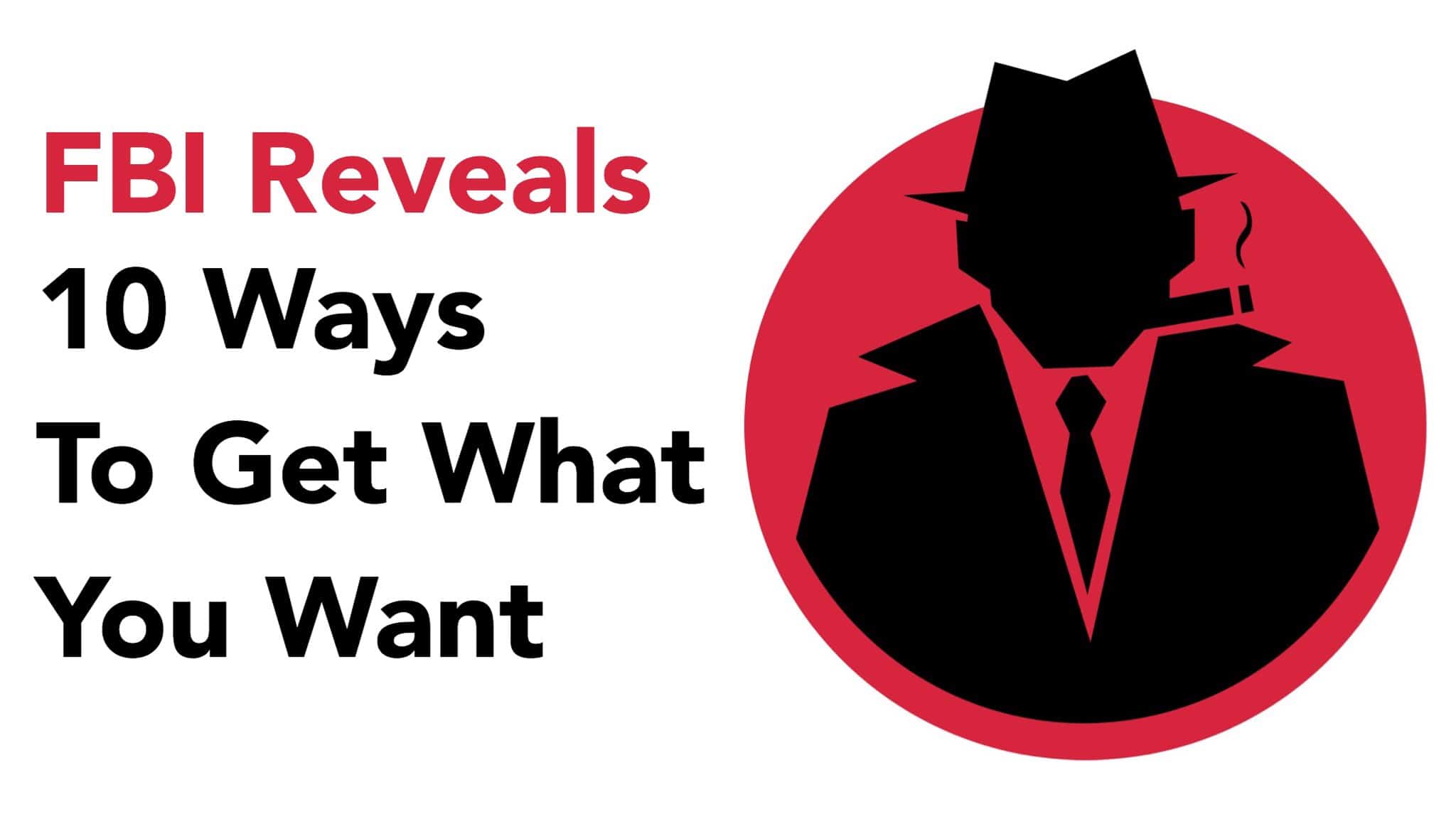Regardless of one’s political stance, there is no denying the FBI’s efficient use of tactical knowledge in counteracting foreign or domestic threats. Aside from the Central Intelligence Agency (CIA), the FBI is second-to-none in its use of deciphering and analyzing intelligence input in its efforts to safeguard the American public. Counterintelligence, the act of “(protecting) against espionage, other intelligence activities, sabotage, or assassinations…on behalf of foreign powers, organizations or persons on international terrorist activities” is among the FBI’s many specialties.
In this respect, who better to learn the art of persuasion than from the finest minds within the FBI? Persuasive techniques are utilized in everyday life – from selling a new widget, to the interrogation of those that threaten a nation’s safety.
While reading this article will not prepare you for a role in psychological warfare, the basic premises will improve your persuasive abilities; whether it’s settling down a raucous classroom, or persuading that tough customer to purchase your product.
There’s much to be covered here, so let’s get right down to business.
“The Federal Bureau of Investigation, or FBI, is the domestic intelligence and security service of the United States, which simultaneously serves as the nation’s prime law enforcement agency. Operating under the jurisdiction of the U.S. Department of Justice, the FBI is concurrently a member of the U.S. Intelligence Community.” – Wikipedia
Here are 10 ways to improve your persuasive abilities (also known as “getting what you want):
1. Address people by name
Addressing someone by their name is a means of validation. The other person feels respected, and may even take on a sense of superiority. At the very least, remembering and saying someone else’s name is a sign of connectedness and respect.
The only caveat: don’t repeat their name so much that it becomes obvious (think of a pushy salesman that tries too hard).
2. Do not correct them (even if you’re right)
This one can be difficult, as it is human nature to prove ourselves right; which is particularly the case when we know we’re in the right. According to the FBI handbook, telling someone they’re wrong is counterproductive when attempting to persuade them. Value their ego – no matter how ill-conceived – and focus your listening skills entirely onto that person.
3. Act politely
Despite the “tough guy” persona often displayed on network television, persuasiveness works best when the person is demonstrably polite. Even the toughest bad guys will sense a nugget of respect, making them more likely to adhere to your motives.
4. Put on a smile
Think about the last time you were greeted by someone. It doesn’t matter if it was at your local Wal-Mart or some high-end electronics store. Did they put on a smile? If not, what were your initial thoughts?
The point is that smiling is among the most powerful actions to incite a sense of positivity and openness in others. Of course, this positive mix of emotions can lower someone else’s guard; making them more open to suggestion.
5. Reiterate what they say
Repeating what someone else says is a sign of active listening – a trait that is (unfortunately) not all-too-common in today’s world. FBI agents leverage this uncommon trait to obtain confessions, even from some of the toughest characters around.
6. Make a good first impression
Dress well. Groom thoroughly. Demonstrate the utmost care concerning your appearance. Why? Because first impressions matter more than any other interactions you may have with someone else.
Looking good and feeling confident almost assuredly leaves a rock-solid first impression. You seem professional – and, perhaps more importantly – are treated as a professional.
7. Compliment them
People love compliments, even the tough guys that the FBI must deal contend with on a daily basis. According to the FBI, any compliment or act must, at the very least, appear to be an act of sincerity. Although an effective persuasive tactic on nearly everyone, it’s particularly effective on individuals with high confidence and self-esteem, as it provides a comfortable blanket of reassurance.
8. Move your head
More specifically, tilt aside or lean your head towards the other person. This is a subtle sign of agreement; another way of displaying active listening. Naturally nodding your head in another method of displaying a sense of mutuality. When done correctly, this head movement can improve a sense of trust, (likely) opening up additional options than initially available.
Related article: 5 Ways to Instantly Feel More Confident
9. Forgo the urge to talk
“God gave us two ears and one mouth.” Regardless of personal beliefs, it carries a potent underlying lesson.
Simply put, talking more than someone else – particularly in a situation that requires the effective use of persuasion – demonstrates that what you have to say matters more than the other person.
FBI agents adhere to the 30-second rule; talking for 30 seconds maximum and using one or two straightforward sentences to get your point across.
10. Mimic their behavior
This last tactic is almost as old as psychology itself but is effective nonetheless. Regarding brain physiology, mimicking actions fire “mirror neurons” in the persuader’s brain. Forgoing complex neuropsychological explanation, this complex brain mechanism is one that creates a sense of mutual agreement and trust.












 Community
Community

